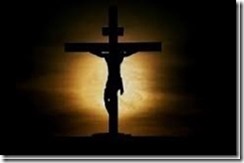 Isaiah 53:5
Isaiah 53:5 LXX But he was wounded on account of our sins, and was bruised because of our iniquities: the chastisement of our peace was upon him; and by his bruises we were healed
LXX But he was wounded on account of our sins, and was bruised because of our iniquities: the chastisement of our peace was upon him; and by his bruises we were healed
Luke 22:44 And being in agony, He prayed more earnestly. Then His sweat became like great drops of blood falling down to the ground.
And being in agony, He prayed more earnestly. Then His sweat became like great drops of blood falling down to the ground.
Bishop Innokenty of Alaska
“He went to the garden of Gethsemane, where He experienced His most agonizing inner sufferings. The anguish was so great that during prayer the sweat on His face became a sweat of blood. At that moment the soul of the Savior was immersed into a terrible darkness and horror at the unbearable sins which He was taking upon Himself. Jesus knew that he had to wash away with His most Holy blood all the countless transgressions of billions of people, beginning with Adam and including all future generations. Overwhelmed by the oppression of the world’s evil, Jesus Christ exclaimed: “My soul is exceedingly sorrowful, even to death” (Matt. 26:38 ). . . .
). . . .
No one can truly comprehend what the pure soul of the God-man experienced in the garden of Gethsemane. You can imagine, however, that all the loathsome sins of mankind were revealed to Him in all their ugliness and that the pure soul of the God-man was shocked and depressed by this terrible sight. Christ knew that His great sufferings and boundless love would be appreciated by only a few, that the majority of the people would turn away from Him with indifference, and that some would reject His teachings and would cruelly persecute those who believed in Him. He foresaw that among His followers there would be many hypocrites who would turn faith into a means for profit and that there would be false teachers and false prophets who would distort His teachings and who, because of pride and greed, would entice the faithful into harmful sects. He foresaw that false pastors would appear, who, because of ambition, would create schisms in the Church. Christ knew not only that many Christians would fail to love God and live righteously but also that they would give themselves to heinous crimes and vices, so that by their sins they would even surpass pagans, and as a result the Christian faith would be scandalized.
In these most trying sufferings, while justice and loyalty to His Father demanded from Christ that He destroy mankind as ungrateful and criminal, the feelings of pity and sorrow ultimately stirred Him to accept all sufferings and death itself to save us sinners from the power of the devil and from eternal damnation. . . .
For whom, then, did the Savior of the world suffer? He suffered for all mankind, for enemies and tormentors, for those who, having received many benefits from Him, failed to thank Him. He suffered for each and every one of us, stubborn sinners, who daily sadden Him with our indifference, ingratitude, hatred, lies, and wicked deeds, and who, by these innumerable sins, crucify Him again and again. . .
. . . By His most precious blood Jesus washed away our sins and made of us children of God, who were slaves of passions and the devil. Those torments we, as transgressors of the will of God, would have had to suffer, He bore for us. By His death He crushed the power of the devil, destroyed the power of hell, and delivered us from death. By His resurrection He gave us life and opened the gates of Paradise to all. Therefore, death is no longer an irreversible tragedy but a passage from this temporary world of vanity and sorrows to the world of bright and joyous life.”
From a sermon entitled The Way into the Kingdom of God
Leave a Reply
You must be logged in to post a comment.